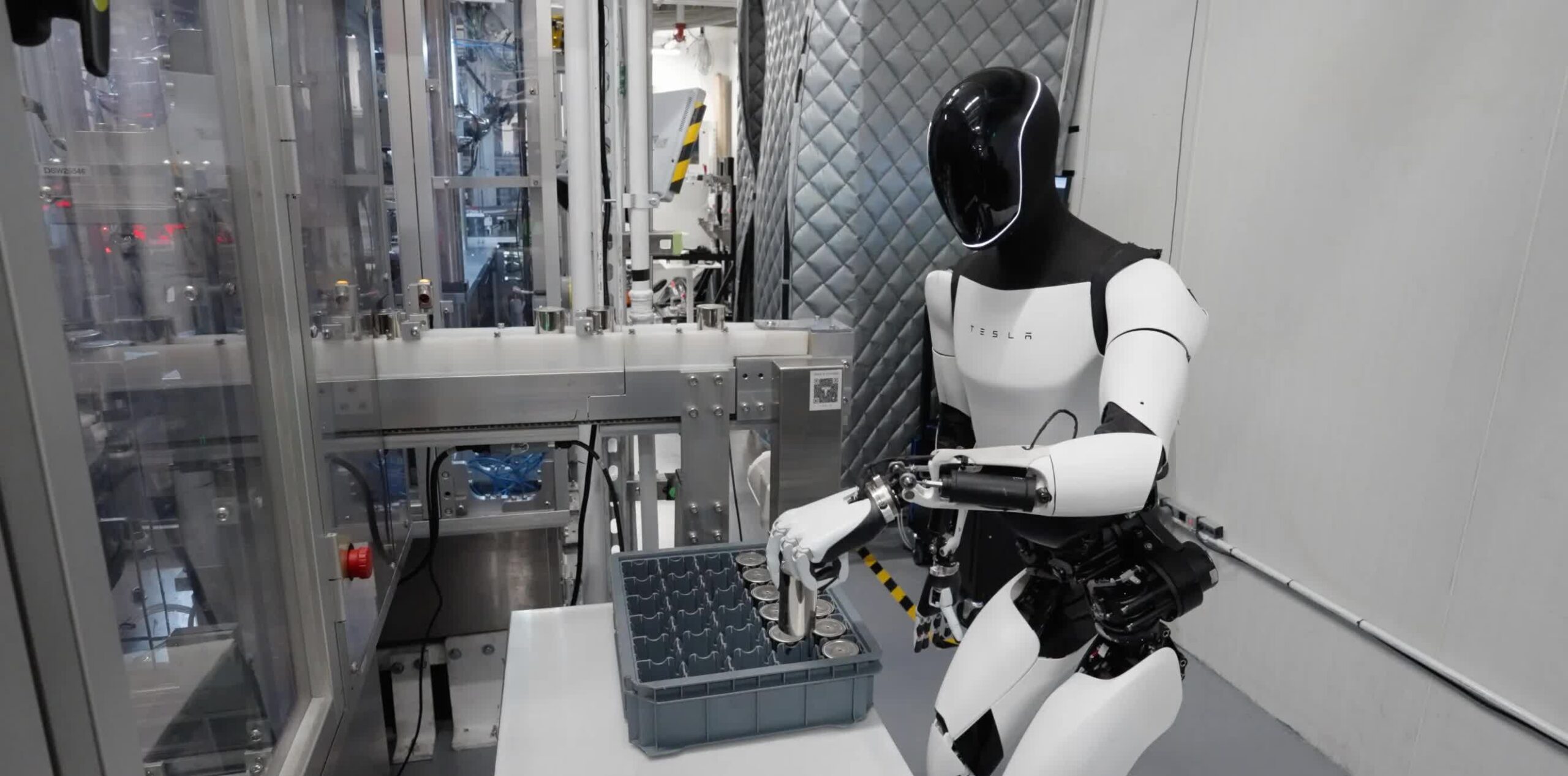In a nutshell: Musk’s ambitious plan for the Optimus drone is starting to come together. The humanoid robots will begin their commercial journey inside Tesla factories, assembling electric vehicles. With a price tag in the tens of thousands, it will be a while before they transition from industrial labor to more domestic chores in customer homes.
Tesla will begin using a small number of Optimus robots for its internal operations next year, while “high production” for third-party companies is hoped to start in 2026. Elon Musk shared the new timeline via X, indicating that he is already behind the previously announced schedule for deploying Optimus at Tesla.
Optimus will be helpful on the company’s manufacturing floor. Musk did not specify the robots’ duties. The new timeline is a slight delay, as he had previously mentioned that the bots would be ready for Tesla factories by the end of this year.
Tesla will have genuinely useful humanoid robots in low production for Tesla internal use next year and, hopefully, high production for other companies in 2026
– Elon Musk (@elonmusk) July 22, 2024
Despite promoting AI, robotics, and various innovations, like most of today’s tech moguls, Musk’s ambition is now weighed down by more urgent issues. Tesla electric vehicle sales have declined, and profits have fallen nearly by half, from $2.7 billion to $1.5 billion in the quarter that ended in June.
Tesla’s focus is now on company-wide cost reduction efforts, and Optimus bots could excel in that regard. A robot doesn’t need to eat, sleep, or rest. Optimus was designed to excel in performing the unsafe, repetitive, or tedious tasks that humans still do on the production line.
Musk previously projected that Tesla would soon start mass-producing robots costing less than $20,000 each for end customers. He also predicted that the company could one day swell to an unprecedented $25 trillion valuation thanks to its robotic tech. The ongoing vision is to improve Optimus bots to the point where they would fit nicely into domestic situations as companions, housekeepers, or babysitters.
Tesla isn’t the only company currently working to embed robotics and drones into its manufacturing process. Honda and Boston Dynamics have made significant progress with their early prototypes. They are now actively working to build a commercial venture based on these robotic experiments over the years.
Traditional carmakers around the world are working on robotic tech as well. Recently, BMW partnered with robotics firm Figure to automate factories, using neural network algorithms to assist with object recognition and manipulation. Several big tech AI players, including Nvidia and OpenAI, helped fund Figure. Jeff Bezos has shown interest in the machine learning-driven bots as well.




